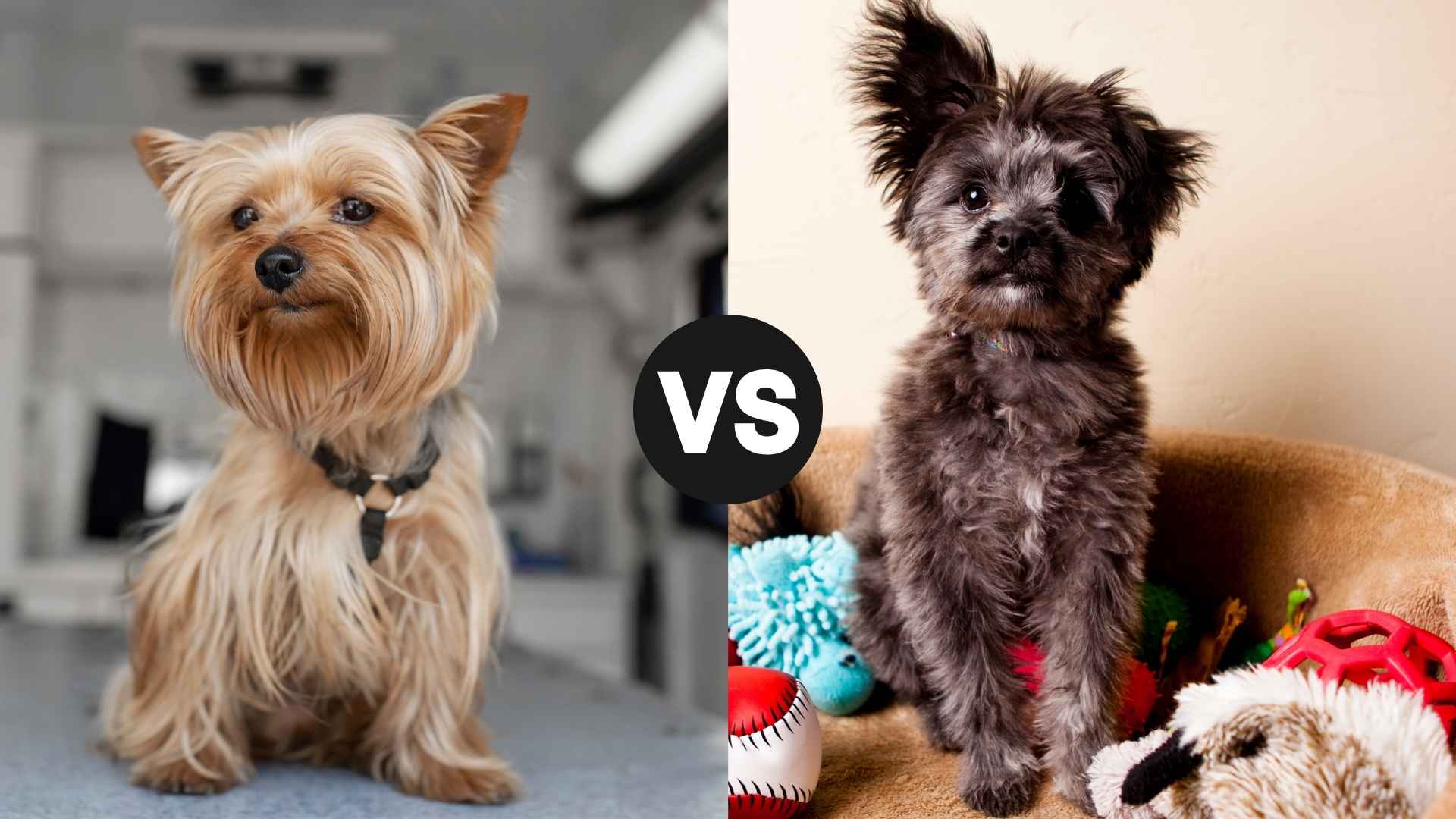When it comes to tiny dogs with big personalities, the Yorkie vs Yorkie Poo debate is a common one among pet lovers. The Yorkshire Terrier, or Yorkie, may be small in size, but it’s bursting with energy, sass, and unwavering loyalty. These spirited pups have long been adored for their bold personality and elegant charm wrapped up in a silky coat.
On the other hand, the Yorkiepoo—a delightful mix between a Yorkshire Terrier and a Miniature or Toy Poodle—is a newer designer breed that’s winning hearts across the U.S. Known for their affectionate nature, intelligence, and low-shedding coat, Yorkiepoos offer a unique blend of both parent breeds.
However, being a mixed-breed dog means their appearance and temperament can vary widely. If you’re torn between these two pint-sized pups, read on as we break down the key differences in personality, grooming, health, and more to help you choose the perfect match.
Yorkie vs. Yorkie Poo
The Yorkshire Terrier, or Yorkie, is a bold little dog with a big personality. Despite their dainty looks and long, silky coats, Yorkies are famously feisty, vocal, and fiercely loyal. Originally bred in 19th-century England, they have a terrier’s tenacity and make surprisingly effective watchdogs. At the same time, they are affectionate lap dogs who thrive on attention and companionship.
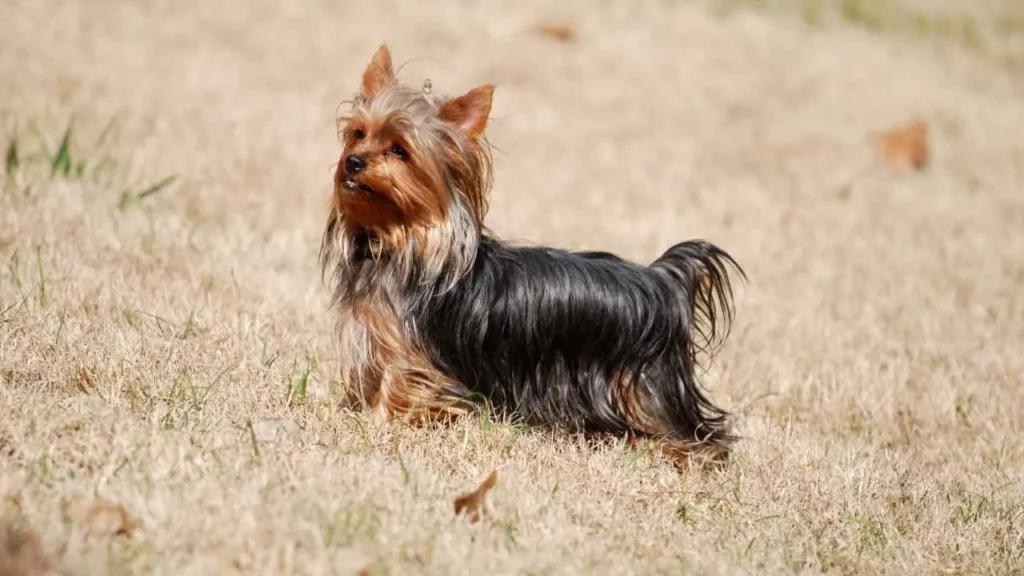
In contrast, the Yorkiepoo—a hybrid of a Yorkie and a Toy or Miniature Poodle—blends that same loyal spirit with the Poodle’s smarts and playful nature. Known for their loving and affectionate demeanor, Yorkie poos tend to be slightly more easygoing and trainable than purebred Yorkies, though they still pack plenty of sass.
Their long, straight coats easily recognize Yorkies in shades of black and tan, while Yorkiepoos vary widely in appearance depending on which parent’s traits dominate. With their soft, curly coat or wavy hair, thanks to the Poodle influence, Yorkiepoos are often considered more allergy-friendly and require less intense grooming than Yorkies.
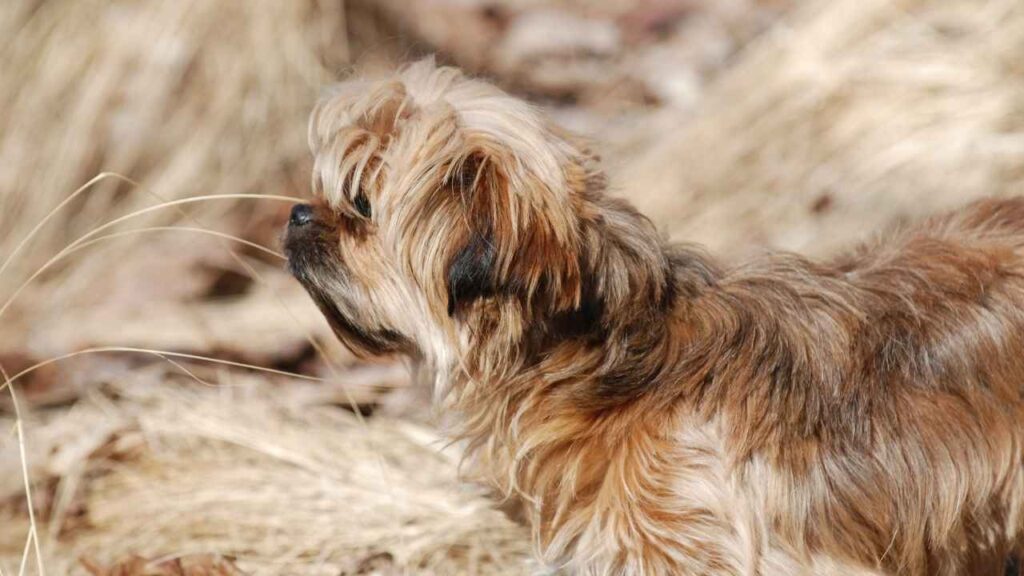
While the Yorkie has a well-established lineage dating back to Yorkshire and Lancashire, the Yorkiepoo is a newer designer breed that gained popularity over the past decade. Both breeds are small in size and big on charm, but the Yorkie tends to have a more traditional look and temperament, while the Yorkiepoo offers a quirky, mixed-breed appeal.
Size and Weight Differences: Yorkie vs. Yorkipoo
The Yorkshire Terrier has a petite stature, but don’t let its tiny size fool you. A full-grown Yorkie stands just 7–8 inches tall and typically weighs no more than 7 pounds. Despite their delicate frame, these dogs are known for their bold, spirited energy and fearless attitude. Their compact size makes them a favorite for apartment dwellers and those seeking a travel-friendly pup.
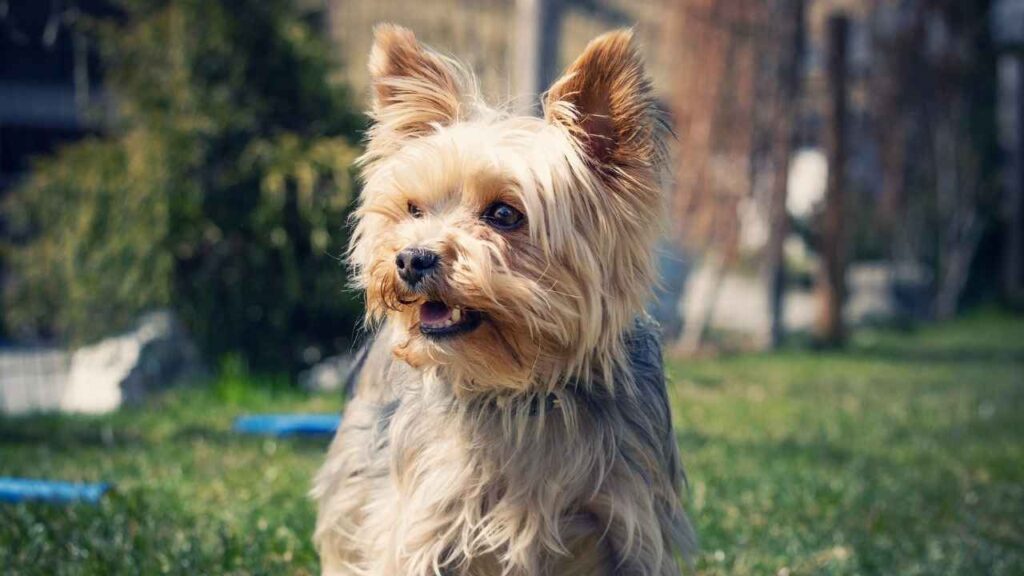
Yorkiepoos, on the other hand, show a bit more variety in size due to their mixed-breed heritage. Depending on whether they’re bred from a Toy or Miniature Poodle, a Yorkiepoo can stand anywhere from 7 to 15 inches tall and weigh between 3 and 15 pounds.
This makes them slightly larger on average than purebred Yorkies, though some may be just as small. Their broader size range means potential owners have more flexibility when choosing a pup that suits their living space and lifestyle.
Personality and Temperament
The Yorkshire Terrier is a tiny dog with a huge personality. Brave, bossy, and full of attitude, the Yorkie is known for its terrier tenacity and alert nature. While they’re affectionate with family and often friendly with strangers, Yorkies can be feisty, especially around unfamiliar dogs or small pets like rodents.
They thrive on interaction and play, but their small size means they must be handled gently, especially by young children. Though stubborn at times, Yorkies are smart and capable learners once they’re in the mood to cooperate. They make loyal companions for seniors or older kids and can be excellent lapdogs when given enough activity.
The Yorkiepoo, on the other hand, brings a gentler and more social vibe to the table. A cross between the intelligent Poodle and bold Yorkie, this hybrid breed is affectionate, trainable, and thrives on human companionship and may develop separation anxiety if left alone for long.
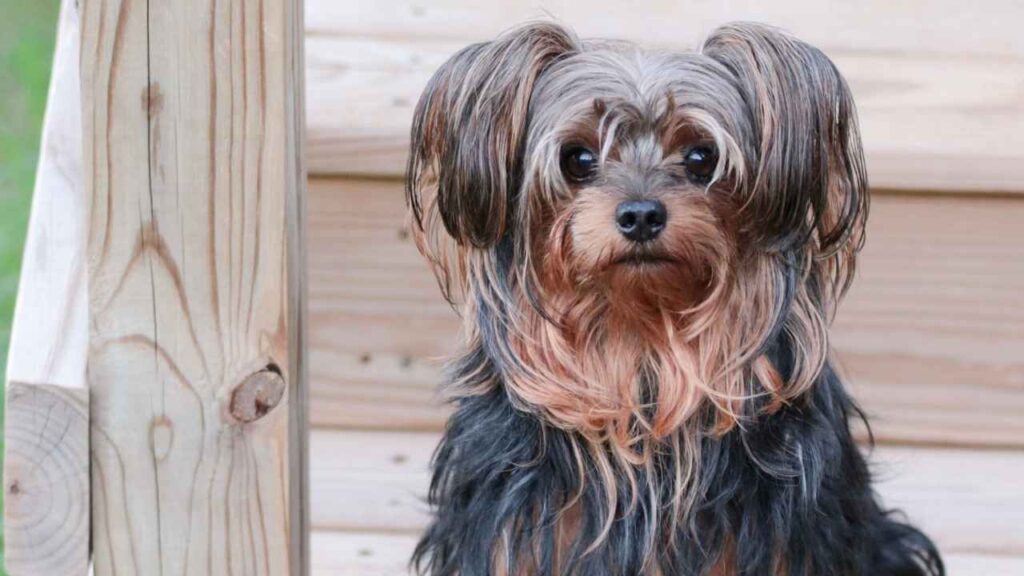
They typically do well with children, but—like many small dogs—prefer gentle handling and can be sensitive to too much rough play. Yorkiepoos don’t need excessive exercise but do require plenty of mental stimulation to stay happy. Their loving, people-oriented personality makes them ideal for families, retirees, or anyone who spends a lot of time at home.
Bite Behavior and Mouth Characteristics
Both the Yorkie poo and Yorkshire Terrier are generally not aggressive when it comes to biting. Yorkies have a low tendency to bite or nip, making them less likely to engage in unwanted mouthy behavior.
While they may occasionally playbite as puppies, this behavior usually fades with proper training and socialization. They’re not natural herders or chewers, and typically don’t nip at heels or hands unless provoked or overly excited. Their small jaws and delicate mouths also mean that even if they do nip, it’s unlikely to cause harm.
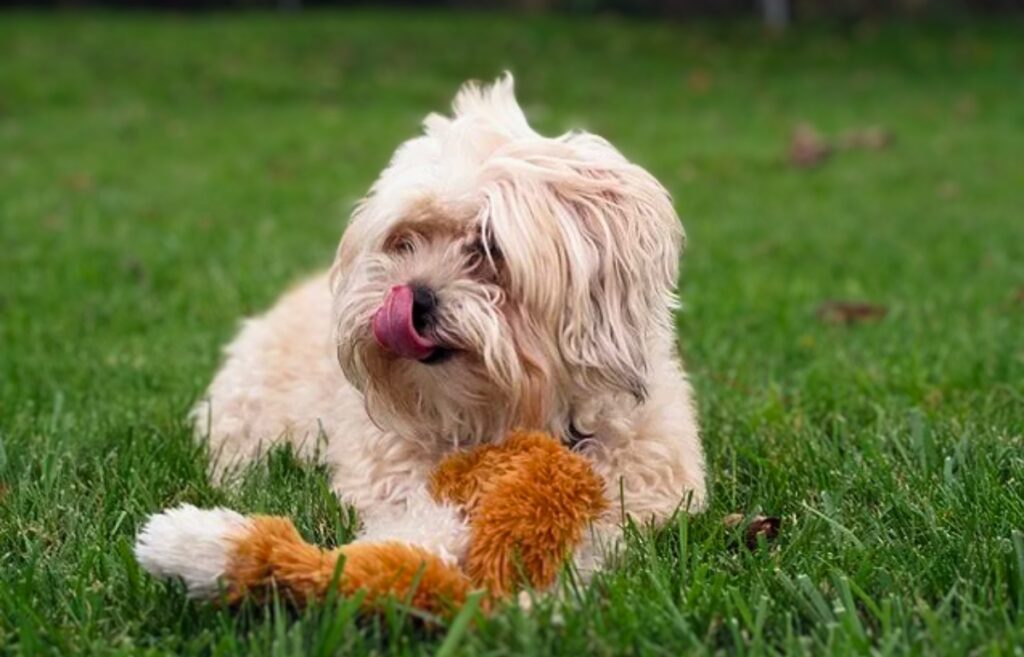
The Yorkiepoo shares this low biting tendency but may exhibit slightly more playful mouthing behavior, especially during puppyhood. Being a Yorkie Poodle mix, they inherit a curious and energetic nature, which can lead to average levels of nipping or chewing if they aren’t mentally stimulated.
Yorkiepoos might be more inclined to chew on toys or explore things with their mouths, but they’re rarely aggressive. Consistent training, teething toys, and redirection from an early age help manage these tendencies.
Health Issues and Lifespan Overview
Yorkie:
Lifespan: 11–15 years, with proper care and regular vet checkups.
Hypoglycemia: Especially common in puppies; signs include weakness, tremors, and disorientation—requires frequent feeding.
Dental Disease: A major concern due to small mouths; daily brushing and regular professional cleanings are crucial.
Patellar Luxation: Kneecap dislocation is common; mild cases may need supplements, while severe ones might require surgery.
Tracheal Collapse: Genetic condition marked by dry coughing; managed through weight control, medication, and use of harnesses.
Liver Shunt: A congenital issue where blood bypasses the liver, causing toxin buildup; may require medication, dietary change, or surgery, states PetMD.
Yorkiepoo:
Lifespan: Around 12–15 years; influenced by genetics, diet, and overall care.
Dental Issues: Prone to periodontal disease; prevention includes brushing, vet cleanings, and oral hygiene products.
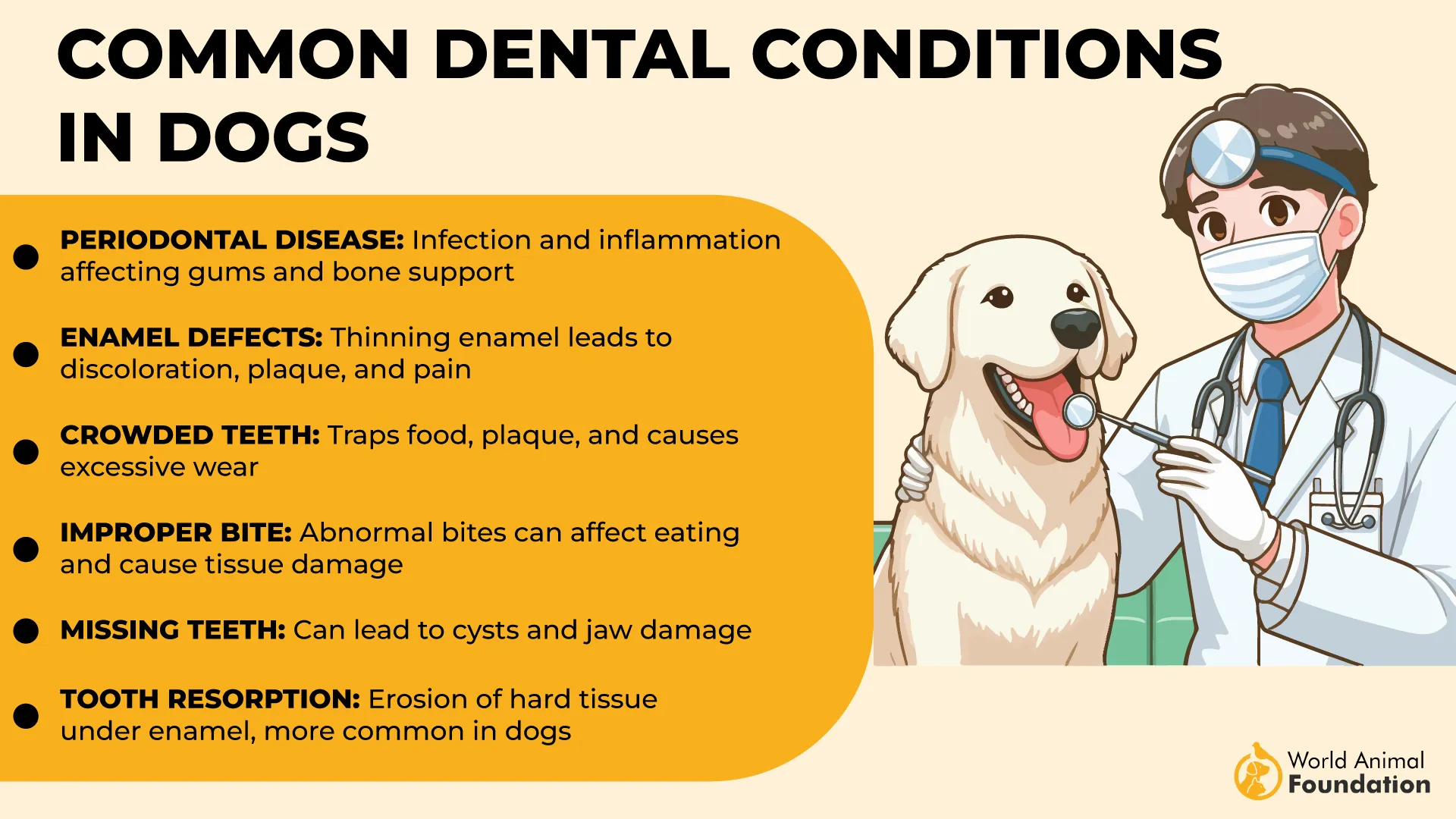
Luxating Patella: Common in small breeds; symptoms include limping or “bunny hopping”; may require surgery in severe cases.
Endocrine Disorders:
Hypothyroidism: Slows metabolism, leading to lethargy and skin issues; managed with lifelong meds.
Diabetes: Requires insulin and blood sugar monitoring; symptoms include weight loss, thirst, and fatigue.
Cushing’s Disease: Overproduction of cortisol; causes infections and hormone imbalances—often managed with meds or surgery, as noted by PetMD.
Energy Levels and Exercise Needs
Yorkies may be small, but they pack a surprising amount of energy into their compact bodies. Originally bred as working-class dogs, they thrive on mental and physical stimulation. Two short walks a day, paired with occasional bursts of play—like chasing a ball or learning new tricks, are typically enough to keep them fit and content.
Mental exercise is just as important for this intelligent breed, so activities like treat hunts, obedience training, and agility courses can be great outlets. Yorkies enjoy exploring new environments, and their curious nature benefits from variety and interaction throughout the day, according to AKC.
Yorkiepoos are energetic, playful companions who need around 30 minutes of daily exercise to stay happy and healthy. This can include a leisurely walk, indoor play, or a game of fetch in a small yard or apartment. Though active, they have short legs, so even moderate walking can feel intense for them—it’s important to go at a slower pace and watch for signs of fatigue or overheating.
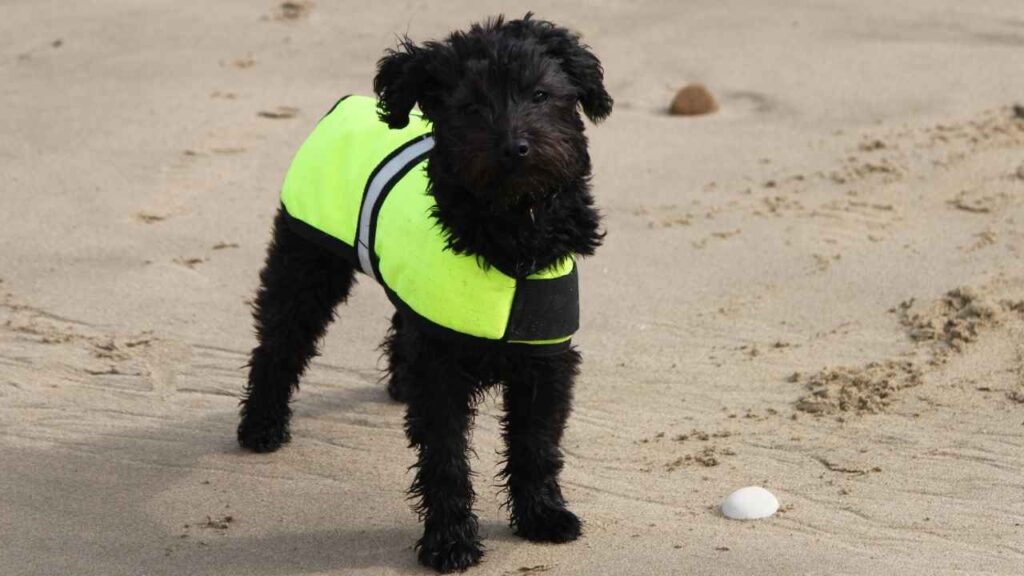
Their adaptable nature makes them well-suited for smaller living spaces, and they don’t require large yards or rigorous workouts. With regular, gentle activity and some mental stimulation, Yorkiepoos tend to settle down easily and enjoy calm cuddle time afterward.
Dietary Needs and Weight Control
Yorkies have small stomachs and fast metabolisms, so meal timing and portion control are crucial. Adults do best with 2–3 small meals daily, while puppies need 3–4 to prevent hypoglycemia. A high-quality kibble for small breeds ensures easy chewing and proper nutrition. Treats should stay under 10% of daily calories to avoid weight gain. Some Yorkies may also benefit from omega-3 supplements for joint, heart, and skin health.
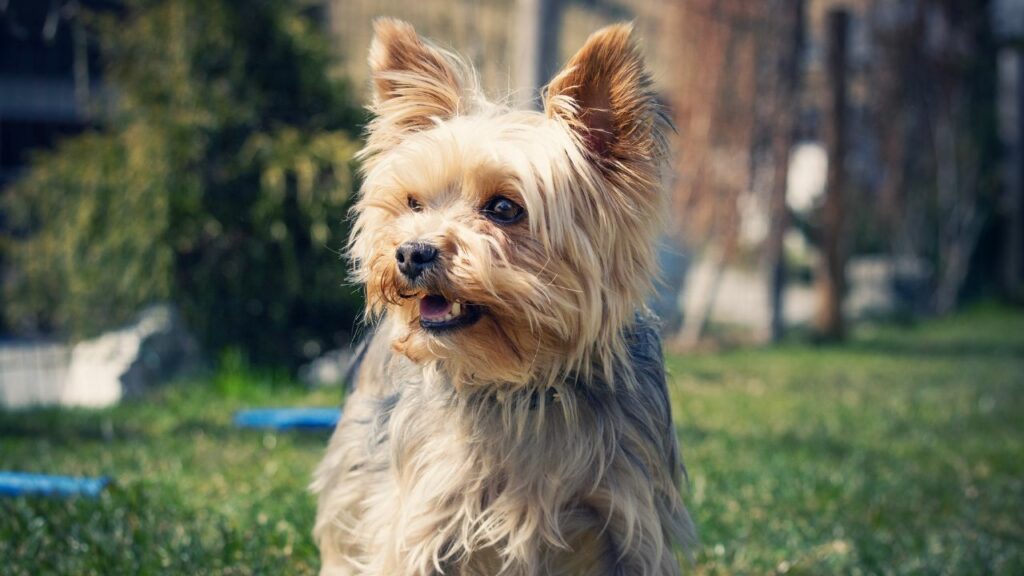
Yorkiepoos thrive on two daily meals of AAFCO-approved food to maintain a healthy weight. Puppies need 3–4 meals a day to support growth and prevent blood sugar drops. Brands like Royal Canin, Hill’s Science Diet, and Purina Pro Plan offer reliable nutrition. Supplements are usually unnecessary unless advised by a vet. Like Yorkies, treats should be limited, and consistent portion control paired with daily exercise keeps them fit and energetic.
Grooming Requirements and Allergy Considerations
As noted by AKC, Yorkies are famous for their long, silky coats that resemble human hair—beautiful, but undeniably high maintenance. To prevent tangles and breakage, daily brushing is essential, especially if the coat is kept long. Many owners opt for a low-maintenance “puppy cut,” which simplifies grooming without sacrificing charm. Regular baths every week or two help keep their coat clean and soft, and the hair around their eyes should be trimmed or tied up to prevent irritation.
Yorkies don’t have an undercoat and are a low-shedding breed, which may be appealing to allergy sufferers. While not completely hypoallergenic, their low-shedding nature means fewer allergens in the home compared to many other breeds.
Yorkiepoos inherit coat traits from both Yorkies and Poodles, so their grooming needs can vary widely. Most Yorkiepoos have low to moderate shedding and require daily brushing to prevent matting and reduce dander. Dogs with more Poodle-like coats may need regular grooming for maintenance.
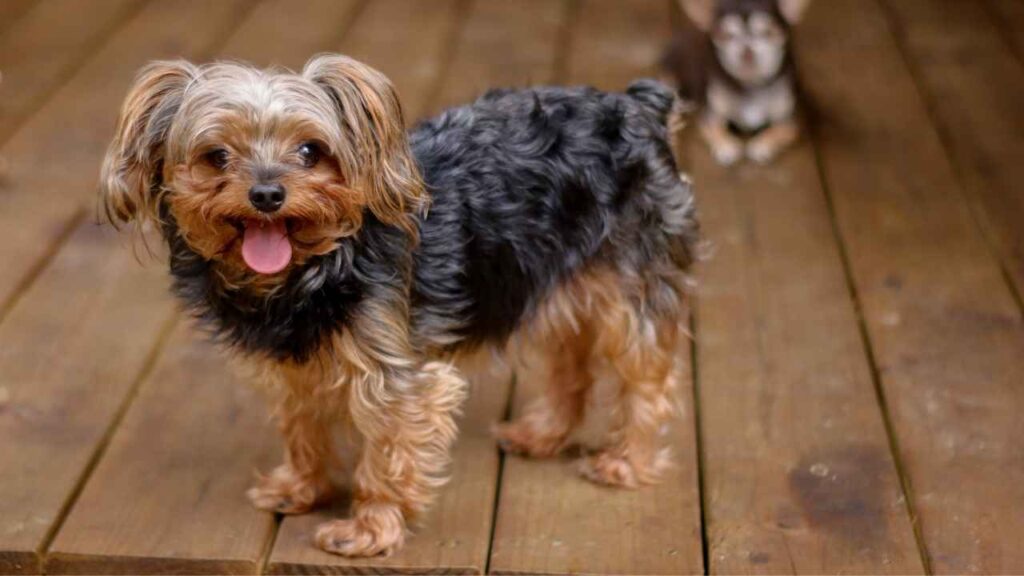
While they’re often marketed as hypoallergenic, it’s important to remember that no breed is completely allergen-free; however, Yorkiepoos are among the better options for allergy-prone owners due to their minimal shedding. With regular coat care and bathing, they remain clean, manageable, and less likely to trigger sensitivities in the home.
Conclusion
Whether you’re drawn to the purebred charm of a Yorkie or the playful energy of a Yorkie mix like the Yorkiepoo, both dog breeds bring an abundance of personality and cuteness into any home.
Yorkies are known for their spirited nature, silky blue and brown coats, and compact size, perfect for owners seeking a bold, adorable companion. Yorkiepoos, while often a bit more mellow, share many of the same traits but may vary in coat type and size depending on the Poodle parent.
While both Yorkie Poos shed minimally, they still require regular grooming to keep their fur in top condition. Neither breed is prone to excessive barking with the right training, though their alert nature makes them vocal when needed.
They do well with other dogs, adapt nicely to human families, and thrive best when raised by a responsible breeder, not from puppy mills. With their big ears, lovable personalities, and low-shedding coats, both canines are undeniably cute and make loyal, engaging pets for the right household.


